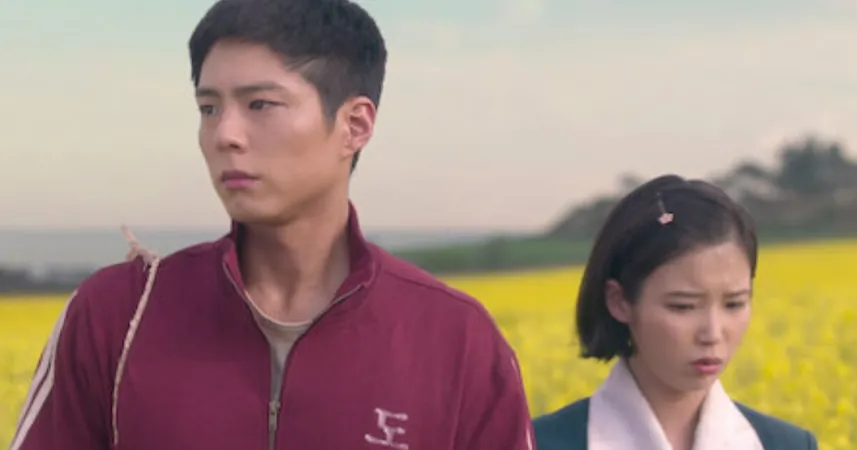
IU & Park Bo Gum's K-Drama Faces Backlash Over "Terrible Subtitles" – Fans Outraged!
2025-03-23
Author: Arjun
IU & Park Bo Gum's K-Drama Faces Backlash Over "Terrible Subtitles"
In a surprising turn of events, Netflix's latest K-Drama, *When Life Gives You Tangerines*, featuring the beloved K-pop sensation IU and actor Park Bo Gum, has ignited a firestorm of criticism from fans around the globe due to what many describe as "the worst subtitles ever." Viewers are taking to social media in droves, voicing their dissatisfaction with the quality of the English translations, which they claim fail miserably to capture the essence of the original Korean dialogue.
Fans have highlighted glaring examples of mistranslations that not only misrepresent characters' emotions but also alter the story's intent. One notable scene involves a character expressing profound regret, yet the subtitles slant the dialogue toward resentment, leading to widespread confusion among viewers who are trying to grasp the emotional depth of the scene. This has sparked a significant backlash, with many asserting that Netflix’s K-Dramas repeatedly fall victim to inadequate subtitling.
Many loyal K-Drama viewers reminisce about the golden days of fan-subtitled dramas, where translations offered a richer context, complete with explanatory notes for idioms, slang, and culturally significant references. This level of care allowed non-Korean audiences to engage more profoundly with the content. In contrast, Netflix's approach appears to strip away this cultural richness, opting for translations that oversimplify rather than enrich the narrative.
Conversely, some defenders of Netflix's subtitle strategy argue that the constraints of the industry – including strict character limits per subtitle and timing issues – make it challenging to maintain the poetic beauty of the original text. There is also a growing concern regarding the low compensation for professional translators, which some believe undermines the quality of the translations provided, as skilled professionals are often not incentivized to produce rich and nuanced subtitles.
Despite the divisive viewpoints, the uproar underscores a larger trend among international K-Drama watchers who yearn for a more substantial investment by platforms like Netflix in high-quality subtitles. With major stars like IU and Park Bo Gum at the helm, fans feel justified in their expectations for production value, including the appropriateness and accuracy of subtitles.
As K-Drama continues to gain popularity worldwide, the question remains: Will streaming giants heed the call for better translations, or will they continue to risk alienating a dedicated fan base? The fans have spoken, and their message is clear – quality translations matter!
 Brasil (PT)
Brasil (PT)
 Canada (EN)
Canada (EN)
 Chile (ES)
Chile (ES)
 Česko (CS)
Česko (CS)
 대한민국 (KO)
대한민국 (KO)
 España (ES)
España (ES)
 France (FR)
France (FR)
 Hong Kong (EN)
Hong Kong (EN)
 Italia (IT)
Italia (IT)
 日本 (JA)
日本 (JA)
 Magyarország (HU)
Magyarország (HU)
 Norge (NO)
Norge (NO)
 Polska (PL)
Polska (PL)
 Schweiz (DE)
Schweiz (DE)
 Singapore (EN)
Singapore (EN)
 Sverige (SV)
Sverige (SV)
 Suomi (FI)
Suomi (FI)
 Türkiye (TR)
Türkiye (TR)
 الإمارات العربية المتحدة (AR)
الإمارات العربية المتحدة (AR)